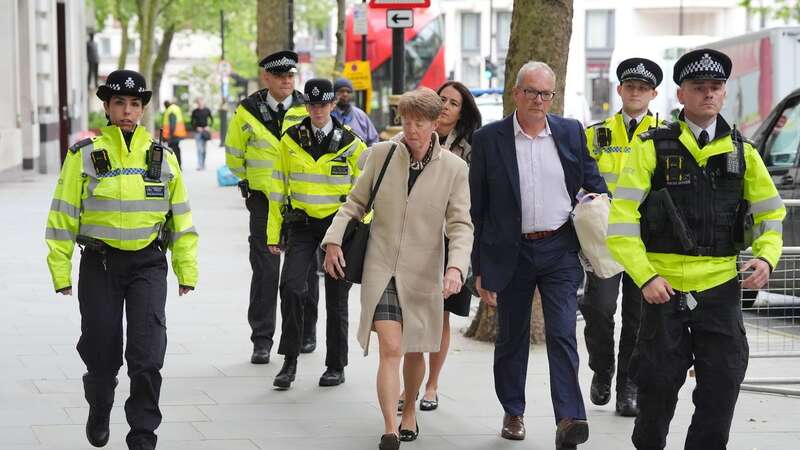
Police are planning to put together a national super team of around 80 detectives for a criminal inquiry into the Post Office scandal.
They vowed “the pursuit of justice” will be at the heart of their investigation. Claims of perjury and perverting the course of justice are expected to be put under the microscope by a dedicated team.
The officers will investigate how hundreds of workers were prosecuted for shortfalls in their Post Office books - despite it being known there were problems with the official IT system called Horizon. It is believed officers will look at allegations against former senior Post Office leaders and tech company Fujitsu.
Met Commander Stephen Clayman, who is currently overseeing the investigation into the scandal, said: “We understand the widespread and devastating impact the Post Office IT Horizon scandal has had on hundreds of sub-postmasters across the country. The Met began a criminal investigation in January 2020 focused on offences of perjury and perverting the course of justice.
 Campaigners outside Aldwych House, central London, where the Post Office Horizon IT inquiry took place last week (PA)
Campaigners outside Aldwych House, central London, where the Post Office Horizon IT inquiry took place last week (PA)“A team of detectives has been painstakingly working through millions of documents manually and with the help of specialist software, in parallel with the Public Inquiry. This is very time consuming and we cannot cut corners and risk missing evidence.
 Pregnant Stacey Solomon brands herself an 'old fogy' over NYE plans with Joe
Pregnant Stacey Solomon brands herself an 'old fogy' over NYE plans with Joe
“Given the significant scale of the investigation, it has been agreed by the National Police Chiefs’ Council (NPCC) that the next phase of the investigation will be a national policing effort, coordinated by the Met, with the pursuit of justice at its heart. We do not underestimate the seriousness of the task at hand and we are determined to carry out a full investigation with independence, precision and integrity.”
The Met Police is said to have already started discussions with prosecutors about the nationwide investigation. It has also reportedly put a bid in for extra funds with the Home Office.
There have been around 900 convictions of Post Office sub-postmasters and other workers. It is claimed the workers were hauled before the court for cash shortfalls - despite it being known that the Post Office’s computer system, Horizon, was faulty.
The police operation will be national but split into four regional hubs as cases come from all around the country. Post Office campaigner Alan Bates met police last week to talk about their investigation.
He said, despite the ongoing public inquiry, more questions needed to be answered. He hoped former Post Office chief executive Paula Vennells, who was grilled last week, would be investigated along with others.
 Paula Vennells faced a grilling at the inquiry last week (PA)
Paula Vennells faced a grilling at the inquiry last week (PA)Mr Bates, who met with the Met this week, said: "We need to ensure that any criminal implications are looked into." Officers will also look at any potential perjury committed by people giving evidence in the trials of wrongfully convicted Post Office workers.
But it is believed the Crown Prosecution Service will not reach charging decisions until 2026, with the wait for any criminal trials much longer. The Guardian claimed early work identified at least 20 potential suspects but the final figure could be much higher.
The Met is a Core Participant in the ongoing public inquiry and has been monitoring proceedings. It had been wading through millions of documents including the former Chief Executive’s statement to the inquiry being 800 pages long.
The criminal investigation must take into account the findings of the public inquiry. The Post Office scandal involves one of the biggest miscarriages of justice in UK history with people wrongly jailed for theft, fraud, and false accounting.
They were wrongly blamed for shortfalls showing up on the Horizon system and innocent people were jailed, hounded for money and sent bankrupt. Seema Misra, who ran a Post Office in West Byfleet, Surrey, was jailed in 2010 after being accused of stealing £74,000.
 Helen Skelton's family 'chaos' to Phillip Schofield's fancy soirée on NYE
Helen Skelton's family 'chaos' to Phillip Schofield's fancy soirée on NYE
She was eight weeks pregnant at the time, and later gave birth to her son while wearing an electronic tag. Others have since died before seeing their convictions quashed and some took their own lives.
Read more similar news:
Comments:
comments powered by Disqus

































